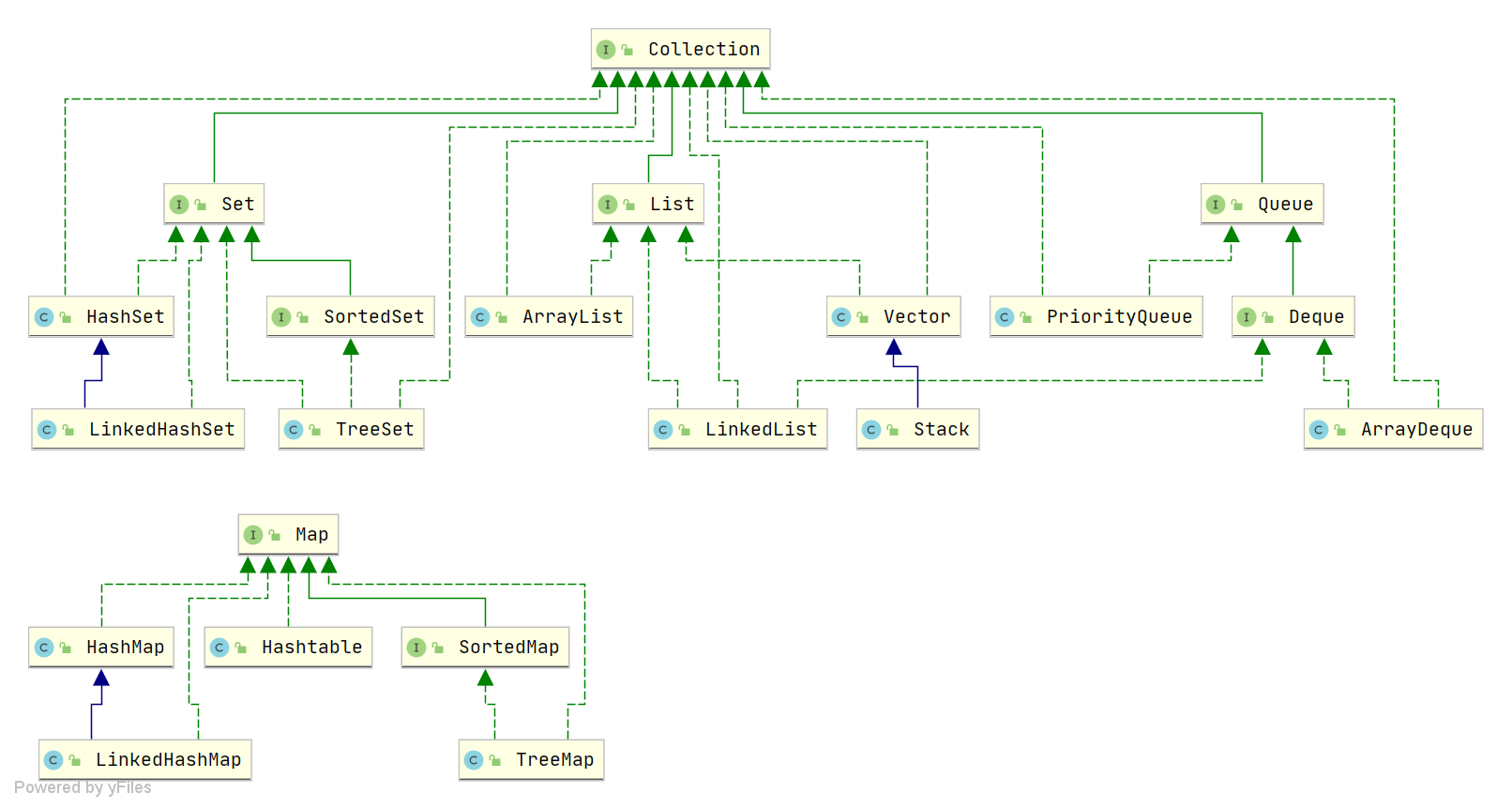1
2
3
4
5
6
7
8
9
10
11
12
13
14
15
16
17
18
19
20
21
22
23
24
25
26
27
28
29
|
HashMap<Integer,String> hashMap1 = new HashMap<>();
HashMap<Integer,String> hashMap = new HashMap<>(hashMap1);
hashMap.put(1,"my value is 1");
hashMap.putIfAbsent(1,"my value is 1");
hashMap.remove(1);
hashMap.remove(1,"my value is 2");
hashMap.get(1);
hashMap.getOrDefault(1, 0);
hashMap.set(1, "new value")
hashMap.containsKey(1);
hashMap.containsValue("whose value is 2");
hashMap.forEach((key1, value1) -> {
});
for (Map.Entry(Integer, String) entry : hashMap.entrySet()) {
System.out.println(entry.getKey());
System.out.println(entry.getValue());
}
TreeMap<Integer,String> treeMap = new TreeMap<>((a,b)->{
return a-b;
});
|



